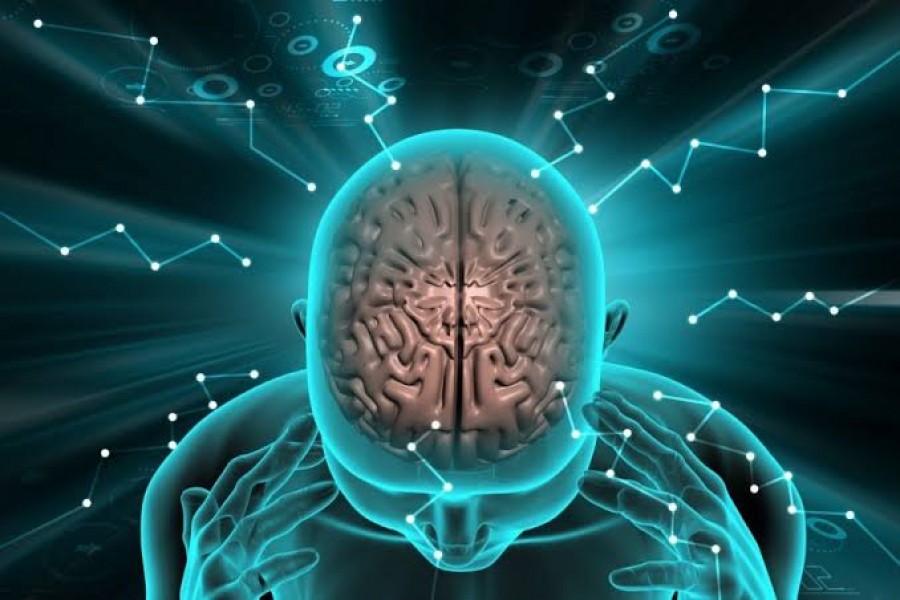Alzheimer's disease (AD) is the disease of the people of old age, generally witnessed after 60-65 years of age. Gradual deficit in memory, thinking process, language skills, and carrying out routine activities, as well as behavioural disturbances are the main symptoms of this disease. This happens due to progressive degeneration of brain cells, resulting in shrinkage of brain.
Awareness about this disease is still low in Bangladesh. This is a country of youth but when this young people will be older, some diseases like Alzheimer's disease may affect them. Since November is the month of awareness about Alzheimer's disease, let's try to inform people about risks and symptoms of the disease and suggest how they can lead a better life.
Alzheimer's disease and normal aging are not the same thing. Alzheimer's symptoms develop slowly and get worse over time. Though it is seen more among older people but it can also affect younger people. On average, a person with Alzheimer's disease lives 4-8 years after diagnosis, but may also live as long as 20 years, depending on other conditions.
Alzheimer's disease was first described by a German neurologist, Dr. Alois Alzheimer In 1906, he noticed changes in the brain tissue of a woman who had died of an unusual mental illness. Her symptoms included memory loss, language problems, and unpredictable behaviour.
After she died, he examined her brain and found many abnormal protein amyloid plaques and bundles of fibres called neurofibrillary occupying neurons. These plaques and tangles in the brain are considered some of the main features of Alzheimer's disease. Another feature is loss of connections between nerve cells in the brain.
Symptoms of Alzheimer's disease include: (1) Memory loss that disrupts daily life, (2) Challenges planning or solving problems, such as following recipes, paying bills and concentrating; (3) Problems completing everyday tasks, such as driving to a familiar location, managing a budget and remembering rules of a game; (4) Confusing time or place, such as forgetting where you are or how you got there; (5) Trouble understanding visual images and spatial relationships, such as problems reading or judging distance; (6) Problems speaking or writing, such as not being able to participate in a conversation and calling things by the wrong name; (7) Misplacing items and not being able to retrace your steps; (8) Changes in judgment, such as giving away money to unknown people or organisations; (9) Withdrawing from work or social activities, often because of embarrassment or shame about changes in memory and other areas; (10) Changes in mood and personality, including becoming depressed, anxious, fearful and suspicious.
There are two types of risk factors for Alzheimer's disease -- modifiable and non-modifiable. Non-modifiable risk factors are aging, positive family history of Alzheimer's disease, and genetic predisposition. Modifiable risk factors are the ones that can be avoided to prevent Alzheimer's disease. These are: lack of regular exercise, lack of hygienic sleep, lack of balanced diet, cardiovascular disease, uncontrolled diabetes, uncontrolled blood pressure, obesity, smoking, repeated traumatic brain injuries (TBI) and environmental contaminants such as toxic metals, pesticide, and industrial chemicals.
Alzheimer's disease is complex, and it is unlikely that any particular drug or intervention can successfully treat it. Current approaches focus on helping people to maintain mental function, manage behavioural symptoms, and slow down certain problems.
Few drugs such as cholinesterase inhibitors approved for symptomatic relief are Donepezil, Rivastigmine, Tacrine and Memantine that are used as one dose or in combination. These drugs help reduce symptoms and improve certain behavioural problems but don't change the underlying disease process.
Dr. Muhammad Sayed Inam, a Bangladeshi psychiatrist, is also a Member of American Psychiatric Association and European Psychiatric Association.


